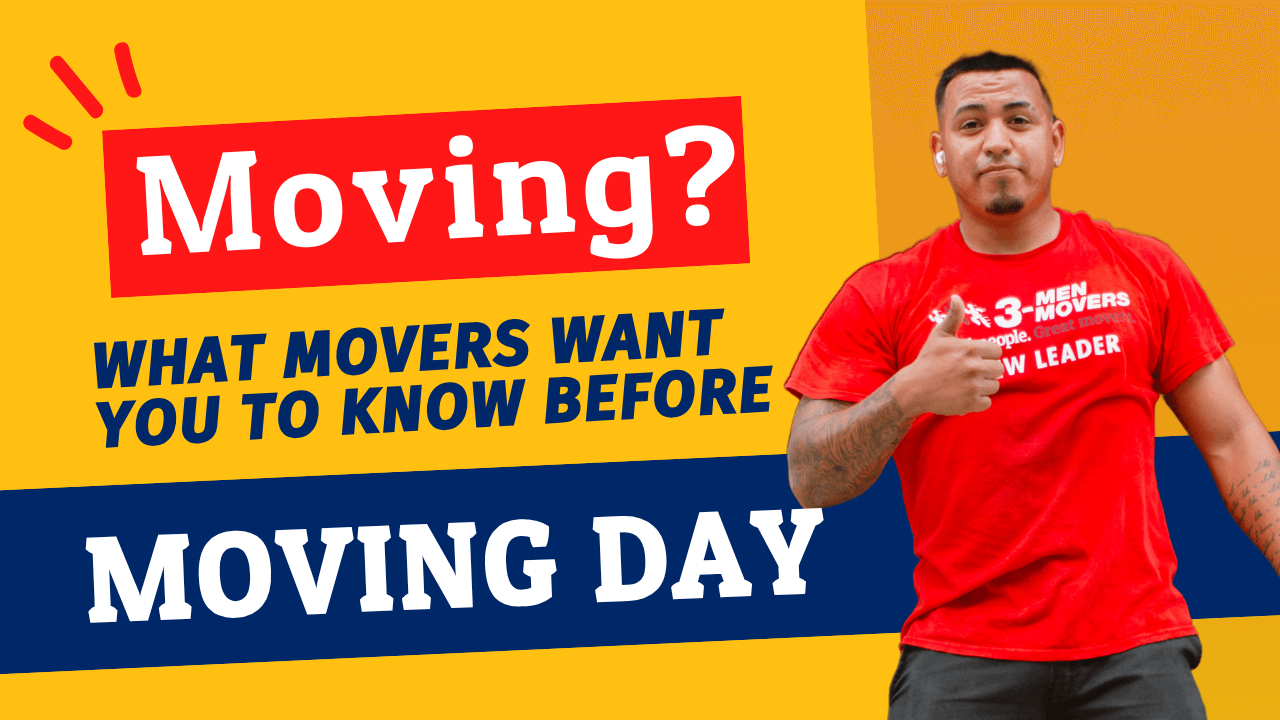

Getting Ready for Moving Day
Moving can bring a whirlwind of decisions, but one of the most common questions people have is: do you need to empty your dresser drawers? It might seem easier to leave them full, especially if you're short on time. But when it comes to moving heavy furniture, what's inside the drawers really does matter. Let’s go over what your movers would want you to know—and how to get your furniture, drawers, and belongings prepared.
Can I Leave Clothes in the Drawers?
So, can you leave clothes in your drawers? Yes, you can, but there are factors to consider. If your dresser is lightweight and you're only leaving soft clothes inside (no sharp objects or heavy jeans), it might be okay. But when you leave all your clothes in, it adds extra weight that can make it harder—and riskier—for movers to carry. The best choice is usually to remove the clothes and pack them in moving boxes.
Do I Need to Empty Drawers Even If They Don’t Have Clothes?
Yes—especially if you're dealing with heavy furniture like solid wood dressers, desks, or chests. Full drawers of items like books, tools, makeup, or loose objects can make drawers unexpectedly heavy and difficult to control. Not only do they add weight, but they can shift, roll, or break during transport. Even light, non-clothing items can slip out of drawers that aren't secured properly. Your best bet? Remove the clothes and pack them separately. Use boxes, suitcases, or vacuum bags to organize and save space while making the move safer and faster for everyone involved.
Why Professional Movers Recommend Emptying Drawers
Most professional movers will tell you: empty dressers are safer to lift, easier to carry through tight spaces, and less likely to cause damage. If a dresser is already heavy on its own, adding full drawers could lead to injuries or scraped floors and doorframes. If your drawers contain anything fragile, messy, or awkwardly shaped, it’s best to remove it. Not only does this make furniture easier to carry, but it also cuts down on the chance of drawers sliding out, shifting weight, or causing damage to nearby walls, doors, or floors.
What's the Risk of Leaving Drawers Full?
Aside from making the moving experience a little easier, movers never want to risk damaging your stuff, which can shift inside the dresser while moving and break or get damaged. Leaving drawers full does increase the chance of things going wrong. Drawers can fly open mid-lift, causing items inside to fall, break, or jam. Worse, suddenly shifting weight can throw off balance and make the piece harder to manage, especially when going up stairs, around sharp corners, or loading into a moving truck. Empty dressers are much easier and safer to move.
What About Securing Drawers Shut?
Some folks try to tape drawers shut with packing tape or masking tape. While this might seem helpful, it's not always a guarantee. If the drawer’s rolling mechanism is weak, it might still slide. And tape can leave residue or damage the furniture finish. If you must keep items in drawers, make sure the drawers are shut tightly. While professional movers will try to lift the dresser as gently as possible, drawers can still open, especially if they have to tilt the dresser to maneuver.
Can I Leave the Drawers Inside the Dresser Once Emptied?
Yes—if the dresser is well-built and the drawers fit snugly, most moving companies will allow you to leave the empty drawers inside. This helps keep all the pieces together and simplifies setup at your new place. Just make sure the drawers won’t slide out during the move. If needed, secure them with stretch wrap to hold everything in place without damaging the wood or finish.
How to Empty Dressers Efficiently
Empty dressers one drawer at a time and sort contents into boxes. Use smaller boxes for heavier things to avoid overpacking. Clothes can be packed in large boxes, luggage, or even vacuum bags. Label each box by drawer or room so it’s easy to put things back in place at your new home.
What About Filing Cabinets and Desks?
Desks, cabinets, and chests with full drawers should also be emptied into sturdy moving boxes and labeled. Paper adds up in weight, and office items can shift or break. Remove drawers if possible, especially for deep or awkward pieces. It makes the furniture lighter and gives movers more control while lifting.
How to Keep Drawers from Sliding Out
If you’re moving lightweight furniture with drawers inside, and you’ve already removed the items, consider sliding the drawers back in and using stretch wrap to keep everything in place. Avoid using packing tape directly on wood or painted surfaces.
Communicate with Your Moving Company
Ask your moving company what they recommend when it comes to full drawers. Some may ask that you empty them completely. Others might allow soft clothing to stay. Every move is different depending on the type of furniture, the distance, and what floor you’re moving from or to.
Preparing Furniture to Move
Before moving day, wrap wood surfaces in furniture blankets to protect against scratches. Dismantle any pieces that come apart easily. Empty space makes a huge difference—lighter furniture is safer to carry, reduces the risk of damaging floors, and helps movers maneuver around corners without incident.
What Happens if You Don’t Empty Drawers?
If you leave items inside, especially breakables or liquids, there’s a chance of damage during the move. Furniture might break, drawers might fall out, or you might lose small items in transit. Items can also slide into tight gaps or fall behind drawer tracks, making them hard to retrieve.
Tips for Organizing Clothes Before a Move
Use this opportunity to sort through clothing. Pack off-season clothes in boxes labeled by type (sweaters, shoes, etc.) or by person. Leave essentials out for a small suitcase or bag you’ll keep with you. This will help with an easier unpacking process once you arrive.
Important Items Should Stay With You
Your movers don’t want the responsibility of transporting certain things on the moving truck—cash, medication, passports, or anything irreplaceable. Keep those in a bag or container that stays with you. This keeps them safe, and it ensures you have quick access to what you need.
Children and Pets on Moving Day
Safety first: pets and little ones should stay out of the action. Moving means a lot of heavy lifting, trips back and forth from the house to the truck, and doors left open. Secure your pets safely in a separate room, or have a friend watch them for the day. It makes for an overall smoother moving experience if you don't have to worry about the little ones on moving day!
Elevators, Stairs, and Tight Spaces
If you’re moving from an apartment or a building with limited access, try to reserve an elevator in advance. Notify your building about the move so you can use service entrances if needed. Tight stairwells and narrow doors are no match for a solid plan.
What Should You Do While Movers Are Working?
Stay nearby, but don’t hover. Your movers may need you to answer questions, unlock a gate, or verify items. Try to stay available, especially when loading fragile or labeled boxes. Before they leave, check each room to make sure nothing was left behind.
How to Safely Load Furniture
Loading heavy pieces takes planning. Furniture should go in first to balance the truck. Boxes are loaded last, with fragile or high-priority items on top. Let your movers lead the process—they’re trained in safely stacking and space-saving techniques that protect your belongings.
Don’t Forget to Label Boxes
When you remove items from drawers while packing, label the boxes clearly. Indicate what’s inside and which room it belongs in. This helps your movers know where to place everything in the new home, which can save you a lot of time later.
What Items to Pack Last
Pack your essentials bag last—think toiletries, phone charger, snacks, and a change of clothes. You’ll want these things easy to access after a long day of lifting, loading, and settling into your new place.
Final Walkthrough Before You Go
Do one last sweep through each room. Open every drawer, check closets, behind doors, and in cabinets. Once the moving truck pulls away, you want to be sure nothing is accidentally left behind.
Do You Tip Movers?
You’re not required to, but it’s always appreciated. If you’re happy with their work, consider tipping or leaving a good review. Mentioning crew members by name goes a long way for their reputation and future opportunities.
Happy Moving!
When your drawers are empty and your boxes are labeled, you’re setting yourself—and your movers—up for success. The smoother the load-out, the faster you’ll be settling into your new space. Moving day doesn’t have to be a mess of mystery drawers and unmarked boxes. With a little preparation, it can actually go pretty smoothly.
Need help with your next move? Contact 3 Men Movers for a reliable crew that’s ready to get the job done right.